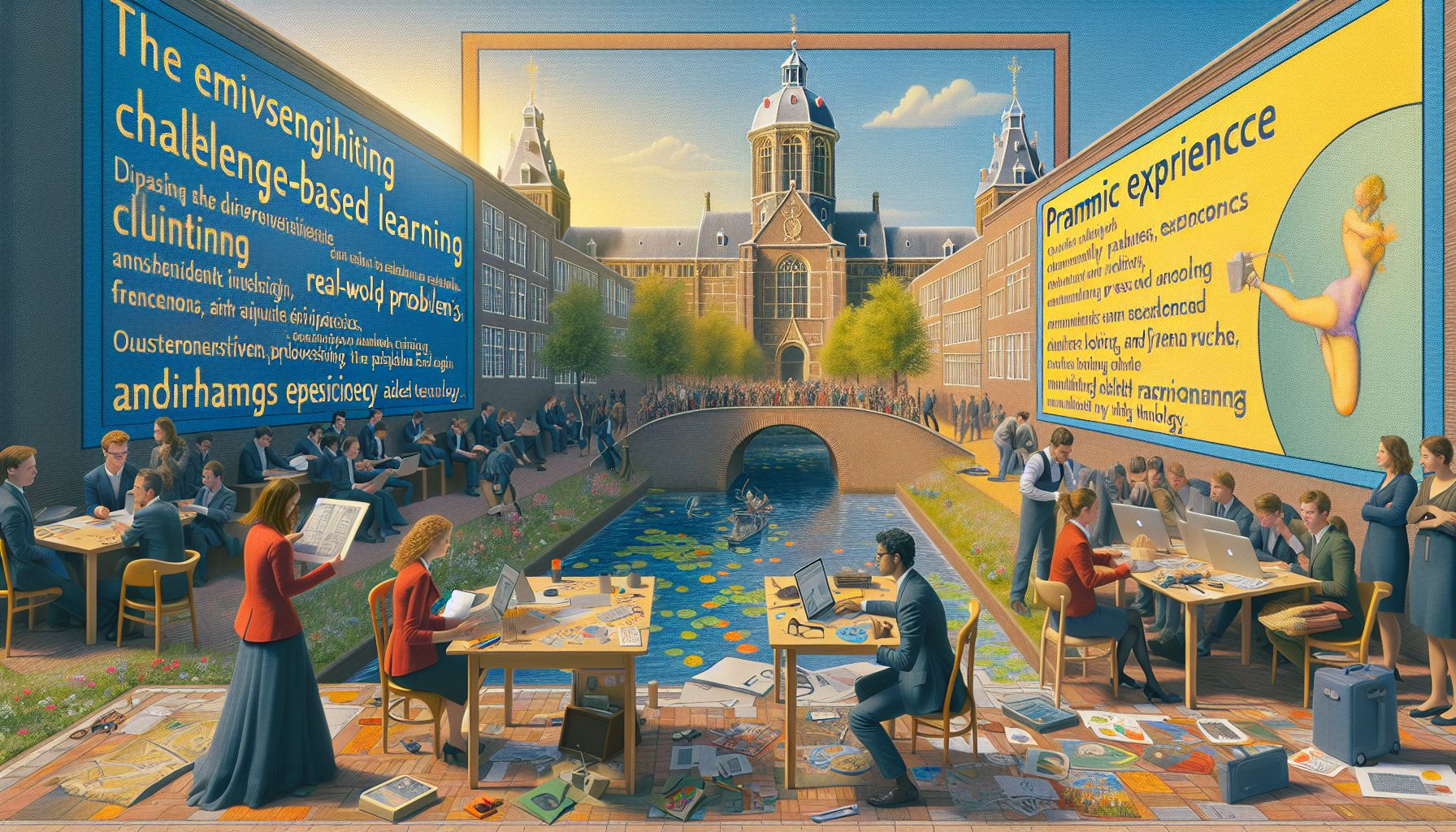Dutch Universities Pioneer Challenge-Based Learning Revolution

Eindhoven, Monday, 18 November 2024.
A transformative shift in Dutch higher education is taking shape as Challenge-Based Learning (CBL) gains momentum. Led by innovators like TU Eindhoven alumnus Bas Verkaik, who turned a student project into ELEO Technologies, this approach combines real-world problem-solving with practical experience. Success stories demonstrate how CBL bridges the gap between academic theory and industry innovation, preparing students for future challenges while fostering entrepreneurial spirit.
The Roots of Challenge-Based Learning
Challenge-Based Learning (CBL) has its roots deeply embedded in the philosophy that learning is most effective when students engage with real-world problems. At the Technische Universiteit Eindhoven (TU/e), this educational model is taking center stage, particularly through the efforts of alumni like Bas Verkaik. During his student years, Verkaik was part of the STORM team, known for its ambitious project of creating an electric motorcycle and journeying 23,000 kilometers around the world to promote sustainable mobility[1]. This experience laid the foundation for Verkaik’s later ventures, including the establishment of ELEO Technologies, which designs modular battery systems for industrial and agricultural machinery.
Innovative Success Stories
The success of Challenge-Based Learning in the Netherlands is illustrated by innovative projects such as ELEO Technologies. Co-founded by Verkaik, ELEO specializes in electrifying off-highway machines, addressing significant environmental challenges by providing sustainable power solutions[1]. The company’s rapid expansion, marked by the opening of a new facility by King Willem-Alexander in January 2024, underscores the practical outcomes of CBL in fostering industry-ready skills among students[1]. This trajectory highlights the seamless transition from academic projects to impactful business ventures, a hallmark of CBL’s effectiveness.
Global Influence and Future Prospects
The influence of Dutch institutions in promoting Challenge-Based Learning is not confined to their borders. Educational leaders from other European universities, such as the Technical University of Denmark, are also embracing CBL, as evidenced by collaborative events aimed at sharing best practices in this educational approach[2]. These initiatives underscore the growing recognition of CBL’s potential to equip students with the skills necessary for tackling complex, interdisciplinary challenges in a rapidly evolving global landscape. As part of their strategic vision, Dutch universities are poised to play a pivotal role in shaping the future of education by integrating CBL into their curricula, thus preparing students for a world that demands adaptability and innovation.
Preparing for Future Challenges
As the demand for adaptive performance in professional environments increases, Challenge-Based Learning presents a viable solution by fostering the development of essential skills. By encouraging students to engage with real-life issues and collaborate across disciplines, CBL cultivates a mindset geared towards innovation and problem-solving. This educational approach aligns with the broader goals of Strategy 2030, aiming to mold future engineers capable of addressing societal challenges through sustainable and innovative solutions[1]. The Dutch education system, through its pioneering efforts in CBL, is setting a precedent for educational institutions worldwide, emphasizing the importance of open-mindedness and real-world application in learning.

